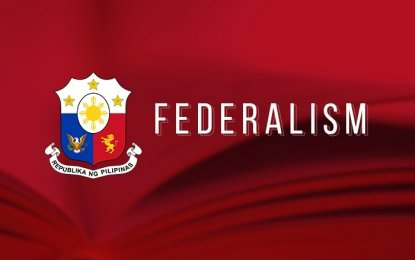
MANILA — Federalism is still the best antidote for the over concentration of powers in the national government, the Consultative Committee (ConCom) maintained Tuesday, as it presented the draft of its proposed Federal Constitution before the Senate.
In his presentation before the Senate Committee on Constitutional Amendments and Revision of Codes, ConCom spokesperson Ding Generoso emphasized that through federalism, government powers, resources, determination of policies, programs, and projects are properly distributed between the federal government and the federated regions.
Generoso also explained the design of the draft Constitution which assures a “permanent, indissoluble nation.”
Moreover, the draft also adopts a more representative legislature, adopts four high courts, strengthens constitutional commissions, establishes 16 federated regions, and the Bangsamoro and Cordillera Regions, and their governments.
It also gives exclusive powers, including power to tax and makes a more effective exercise of people’s initiative to enact, amend, or repeal laws, and to amend or revise the Constitution.
Generoso explained the salient features of the structure of the federal government on the Articles on the Executive, Legislative, and Judiciary departments.
Senator Francis Pangilinan, chair of the Senate Committee on Constitutional Amendments, insisted on a Charter Change that went through a democratic process.
Pangilinan earlier said that Malacañang should not “force” cha-cha, otherwise the administration’s approval rating may fall further.
Separate voting
Meanwhile, ConCom chairperson and former Chief Justice Reynato Puno agreed with the Senate that the two houses of Congress should vote on Charter Change separately.
“I expressed my own opinion that voting shall be done separately by both Houses of Congress,” Puno said during the hearing.
“I do not claim that I am the legal Einstein of our Constitution. There is another school of thought and I respect that,” he added.
Puno made this remark in response to the question raised by Senator Paolo Benigno “Bam” Aquino IV who sought the ConCom members’ interpretation on how the Congress would make amendments to the charter.
He also said that the draft Federal Constitution has a provision clearly stating that voting should be separate.
ConCom member and former Senate President Aquilino “Nene” Pimentel Jr., like Puno, also believed that voting on Charter Change should be separate.
“It should be done separately. Two-hundred eight plus members of the House will deluge 24 senators if you vote jointly. House alone cannot initiate Cha-cha,” Pimentel said.